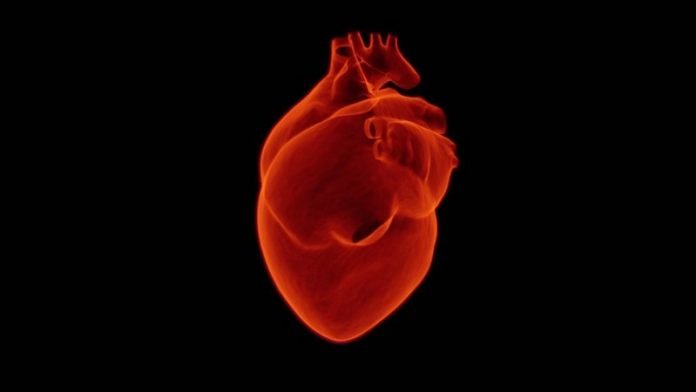
In two new studies, researchers found in the heart, one molecule in particular, (KLF)-5, can drive both the generation of oxidizing molecules and the accumulation of toxic lipids in the heart, causing heart dysfunction.
The protein can lead to abnormal heart function, including diabetes and heart attack.
The research was conducted by a team at Temple University.
Oxidative stress occurs when harmful oxygen-containing molecules outnumber helpful antioxidants, leading to damaging reactions with proteins, DNA, and other cell components.
In the first study, the team examined the involvement of KLF5 in diabetic cardiomyopathy.
Diabetic cardiomyopathy is a major complication of diabetes and is characterized in particular by altered heart cell metabolism and oxidative damage.
The study showed that patients with diabetes have high levels of KLF5 expression in the heart.
The researchers found that mice with diabetic cardiomyopathy similarly have high KLF5 expression and that elevated KLF5 is linked to the build-up of ceramides in the heart.
Ceramides, which occur naturally in the cell membrane, are known to reach toxic levels in the presence of insulin resistance and severe heart damage, such as that inflicted by a heart attack.
The team showed that, however, these harmful effects could be halted. Inhibiting KLF5 with a drug, as well as with genetic interventions, not only reduced oxidative stress and prevented ceramide accumulation but also restored cardiac function.
In the second study, the team examined the role of KLF5 in mice with heart failure induced by cardiac ischemia, a sudden, severe blockage of blood flow to the heart.
They found that KLF5 is involved in causing the production of ceramides that underlies damage to the cardiac wall.
The team says the next step is to determine whether the severity of heart disease or the way patients respond to treatment is associated with increased KLF5.
One author of the study is Konstantinos Drosatos, Ph.D., Associate Professor of Pharmacology.
The study findings are published in Circulation Research and Circulation.
Copyright © 2021 Knowridge Science Report. All rights reserved.



